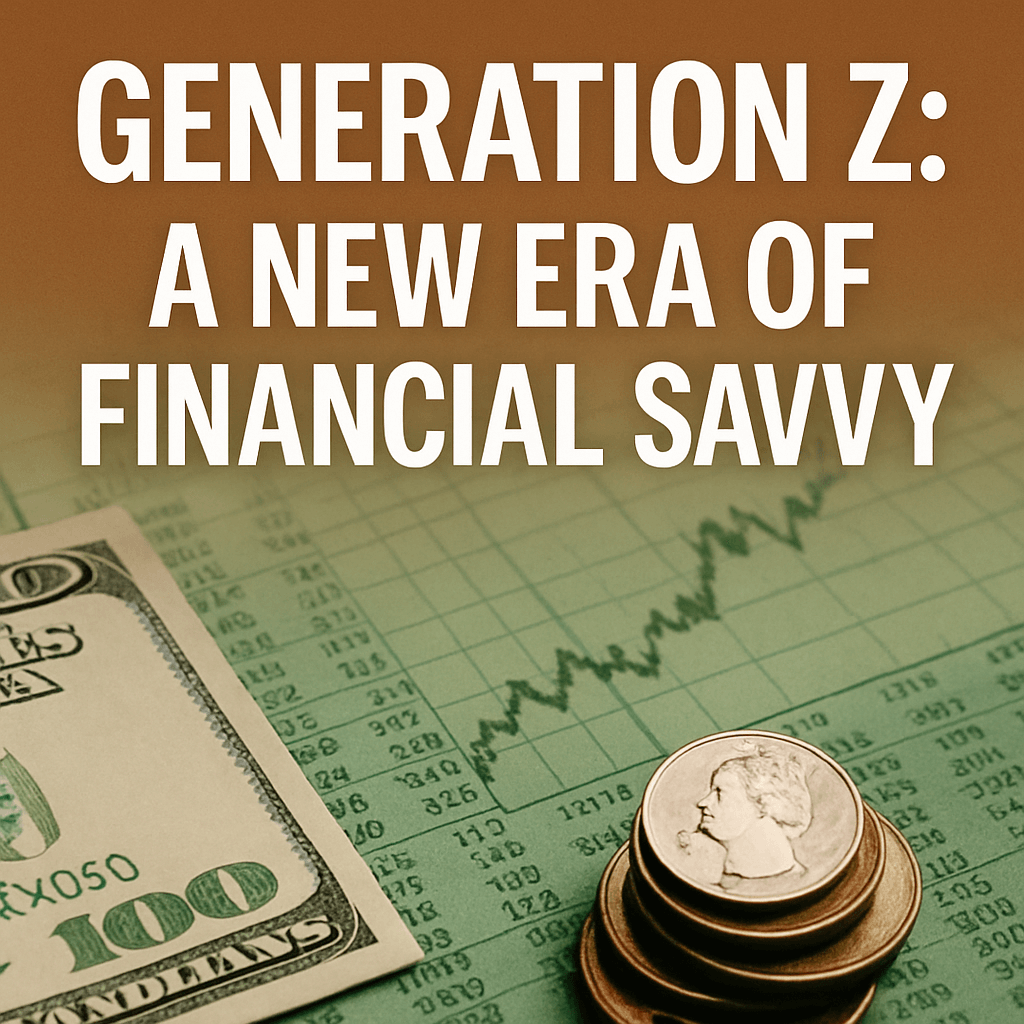Generation Z: A New Era of Financial Savvy

Recent research conducted by Moneybox, a leading saving and investing app, has identified Generation Z (those born after 1996) as the most financially knowledgeable demographic compared to previous generations. With their unique experiences shaped by digital technology and shifting economic conditions, Gen Z is redefining financial literacy and engagement in several ways.
The Confidence of Gen Z in Personal Finance
According to the data, 25% of Gen Z individuals classify themselves as “very smart” with money, significantly higher than the intergenerational average of 16% and more than double the reported confidence level of Baby Boomers, which sits at 12%. This self-assessment indicates a cultural shift towards financial empowerment among younger demographics as they navigate an increasingly complex financial landscape.
Financial Goals and Habits
Key findings from the Moneybox study showcase Gen Z’s proactive approach to their finances. Notably, 24% of Gen Z members report actively setting both short-term and long-term financial goals. Furthermore, 32% consistently stick to budgets, and 18% are earning a supplemental income through side hustles—a testament to their entrepreneurial spirit. This inclination towards side jobs can be attributed to the gig economy’s expansion and the need for young people to diversify their income sources amidst economic uncertainties.
- Short-term and long-term financial goal setting: 24%
- Budgeting: 32% actively manage and adhere to their budgets.
- Side hustles: 18% pursue additional income streams.
Engagement Through Learning and Discussion
Gen Z’s quest for financial knowledge is underscored by a desire to learn from their peers, with 88% expressing interest in adopting smart financial moves identified by others. This is further reinforced by 75% of respondents advocating for more open conversations about finances within their personal circles. An impressive 43% routinely discuss financial strategies with friends and family, a figure notably higher than the mere 19% of individuals aged 65 and above who do the same.
The Paradox of Financial FOMO
Despite their confidence, there exists a contradiction within Gen Z regarding their financial practices. A significant 34% cite observing their peers saving as a primary source of what is termed Financial FOMO (Fear of Missing Out), yet only 28% report saving regularly. Moreover, their adoption of automated financial tools is relatively low, with only 10% having established an auto-save feature and just 16% utilizing automatic direct debits for recurring bills. This highlights a potential gap between financial knowledge and practical application.
Investing Trends in Generation Z
Investment strategies among Gen Z also reveal an interesting perspective. Although 22% acknowledge regularly investing and engaging in crypto investments, only 16% assert they commenced investing at an early age. The combination of financial education and long-term planning becomes critical as economic conditions evolve, especially considering current market volatility and the opportunities presented by emerging technology.
Expert Insights on Financial Education
Brian Byrnes, Head of Personal Finance at Moneybox, states, “Gen Z are at the beginning of their savings journey, and it’s encouraging to observe their enhanced financial confidence compared to prior generations. Open discussions around personal finance will undoubtedly contribute to their knowledge base. However, it is crucial that they refrain from comparing themselves to others. Previous research by Moneybox highlighted that those relying solely on advice from friends and family were, on average, £42,000 worse off than individuals who sought diversified financial guidance.”
Supporting Financial Literacy Initiatives
The Financial Conduct Authority (FCA) and Treasury’s Advice Guidance Boundary Review is expected to introduce targeted support designed to assist Gen Z and other demographics with personalized financial advice. This could significantly bridge the gap in knowledge, enabling young savers to make more informed decisions.
Actionable Tips for Building Financial Foundations
- Establish a Budget: Use budgeting tools to track income and expenses effectively.
- Set Specific Goals: Document both short-term and long-term financial objectives to stay motivated.
- Automate Savings: Explore automatic transfers to savings accounts to cultivate disciplined saving habits.
- Seek Diverse Guidance: Consult professional advisors as well as utilize online educational resources.
As Generation Z continues to engage with financial matters, their evolving strategies may reshape traditional notions of wealth management and investment practices.